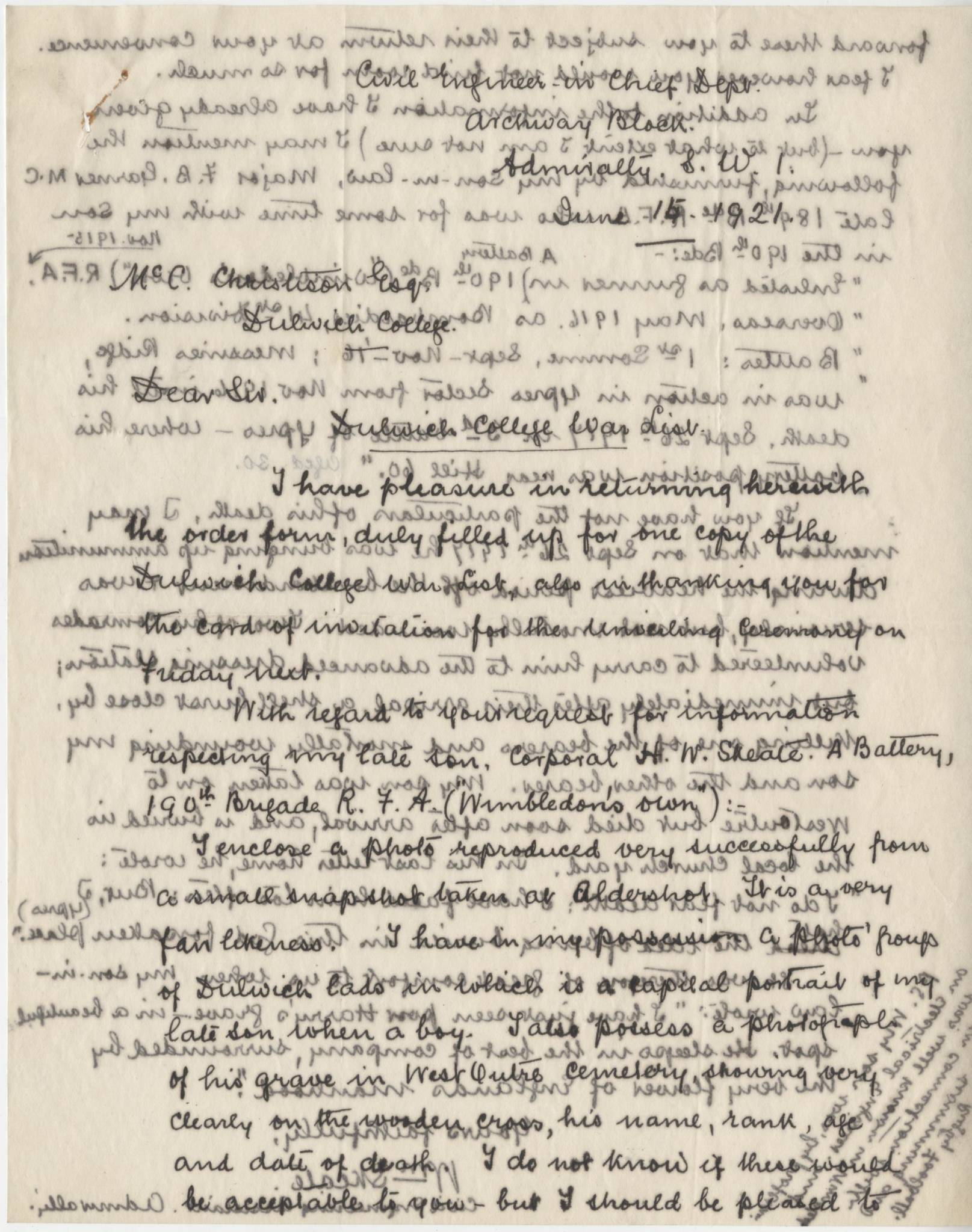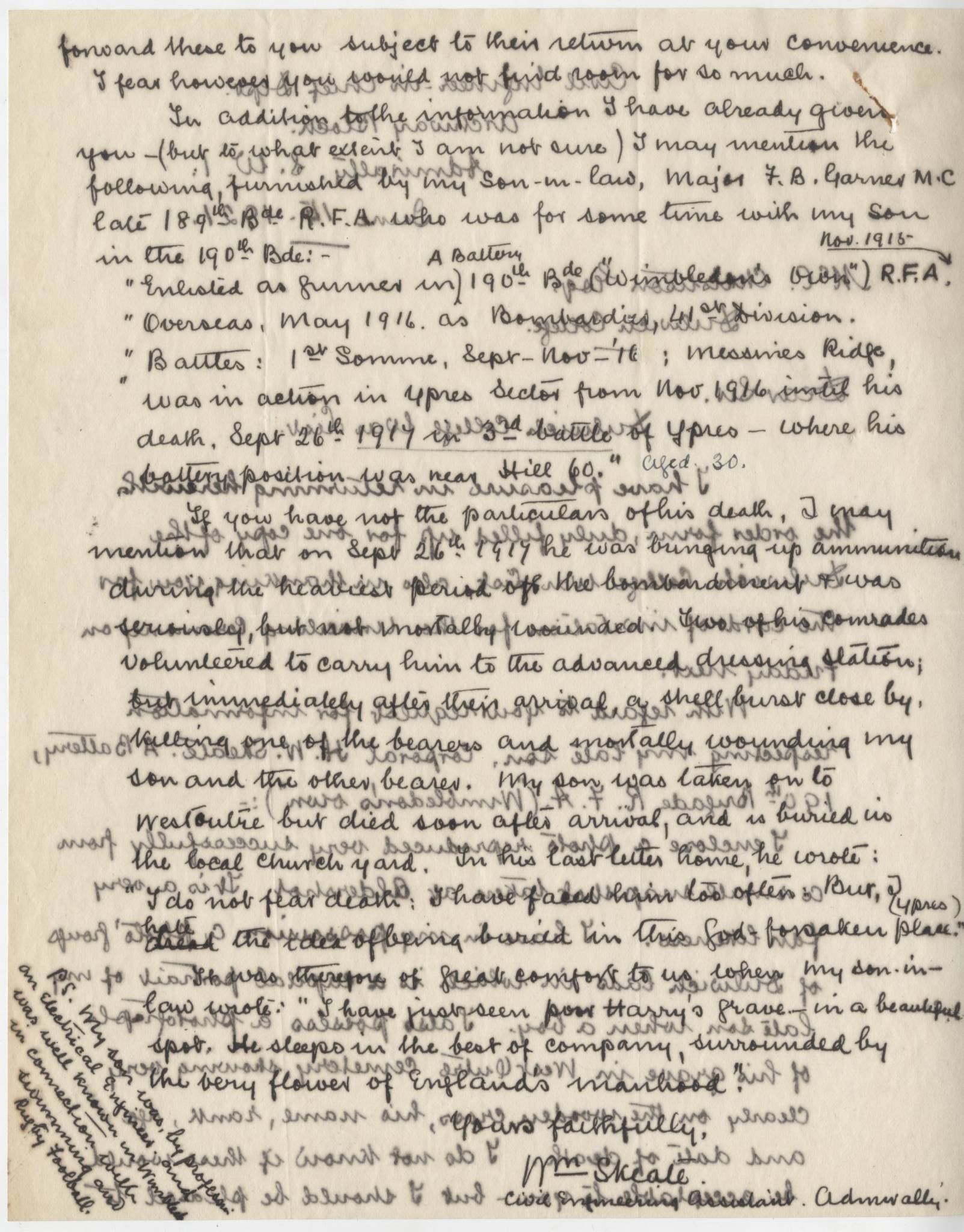HW Skeate Second Father Letter


Civil-Engineer-in-Chief Dept.
Archway Block
Admiralty, S.W. 1
June 15 1921
McC. Christison Esq.
Dulwich College
Dear Sir,
Dulwich College War List
I have pleasure in returning herewith the order form, duly filled up for one copy of the Dulwich College War List, also in thanking you for the card of invitation for the unveiling ceremony on Friday next.
With regard to your request for information respecting my late son, Corporal H.W. Skeate, A Battery, 190th Brigade, R.F.A (Wimbledon’s Own):
I enclose a photo reproduced very successfully from a small snapshot taken at Aldershot. It is a very fair likeness. I have in my possession a photo [of a] group of Dulwich lads in which is a capital portrait of my late son when a boy. I also possess a photograph of his grave in West Outre Cemetery, showing very clearly on the wooden cross, his name, rank, age & date of death. I do not know if these would be acceptable to you – but I should be pleased to [2] forward these to you subject to their return at your convenience. I fear however you could not find room for so much.
In addition to the information I have already given you (but to what extent I am not sure) I may mention the following, furnished by my son-in-law, Major F.B. Garner, M.C. late 189th Bde. R.F.A. who was for some time with my son in the 190th Bde: –
- Enlisted as gunner in A Battery 190th Bde (“Wimbledon’s Own”) R.F.A., Nov. 1915
- Overseas, May 1916 as Bombardier, 41st Division
- Battles: 1st Somme, Sept.-Nov. 1916; Messines Ridge, was in action in Ypres Sector from Nov. 1916 until his death, Sept. 26th 1917 in 3rd Battle of Ypres – where his battery position was near Hill 60. [He was] Aged 30
If you have not the particulars of his death, I may mention that on Sept. 26th 1917 he was bringing up ammunition during the heaviest period of the bombardment & was seriously, but not mortally, wounded. Two of his comrades volunteered to carry him to the advanced dressing station; but immediately after their arrival, a shell burst close by, killing one of the bearers and mortally wounding my son and the other bearer. My son was taken on to West Outre but died soon after arrival, and is buried in the local churchyard. In his last letter home, he wrote: ‘I do not fear death; I have faced him too often. But I hate the idea of being buried in this god-forsaken place (Ypres).’
It was therefore of great comfort to us when my son-in-law wrote: ‘I have just seen poor Harry’s grave – in a beautiful spot. He sleeps in the best of company, surrounded by the very flower of England’s manhood.’
Yours Faithfully,
Wm. Skeate
Civil Engineering Assistant, Admiralty
P.S. My son was, by profession, an electrical engineer, and was well known in Wimbledon in connection with swimming and rugby football.